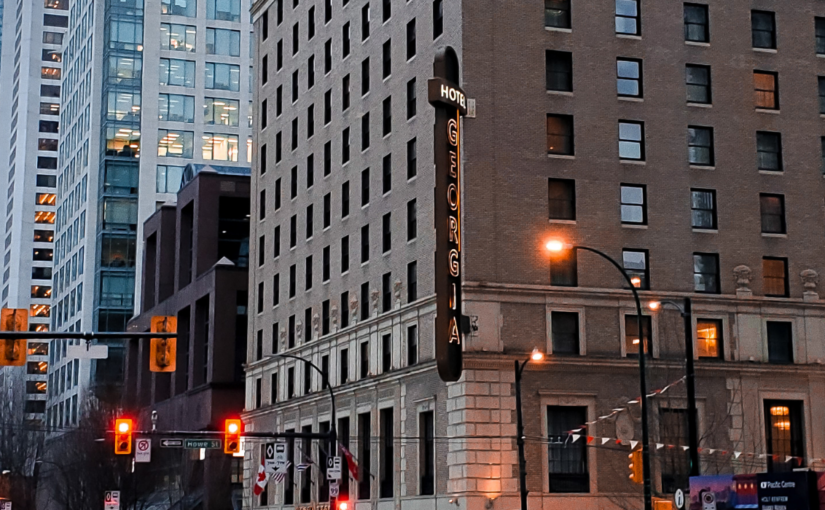back
Alternative financing methods for hotel and hospitality properties
03-2023

Many hotels and other properties are struggling to survive as a result of the pandemic, which has had a severe impact on the hospitality sector. Alternative financing methods for hotel and hospitality properties can offer much-needed funding to keep businesses afloat even though traditional financing options might not always be accessible. This blog post will discuss some nontraditional financing methods for hotel and hospitality properties.
Crowdfunding
In recent years, crowdfunding has grown in popularity and is no longer limited to startups. To raise money for upgrades, additions, and other projects, many hotels and other lodging facilities have turned to crowdfunding. Businesses can reach out to a large audience and raise money from numerous sources by using crowdfunding.
Equity crowdfunding, reward-based crowdfunding, and donation-based crowdfunding are just a few of the various types of this practice. Equity crowdfunding enables companies to sell shares to investors, whereas reward-based crowdfunding rewards backers for their support with a reward. People can donate money to crowdfunding projects using a donation model without expecting anything in return.
For hotels and other lodging facilities looking to raise money quickly and easily, crowdfunding can be a fantastic option. It’s crucial to keep in mind that crowdfunding campaigns take a lot of time and work to develop and promote, and there is no assurance of success.
Alternative lenders
Although conventional banks and lenders might not be eager to finance hotels and other hospitality-related properties, there are alternative lenders who focus on these sectors. Short-term loans, lines of credit, and merchant cash advances are just a few of the financing options that alternative lenders might provide.
The majority of the time, short-term loans are used for urgent financial requirements like payroll or inventory costs. Business lines of credit give them access to money when they need it, and merchant cash advances give them cash in exchange for a percentage of future credit card sales.
With less than ideal credit or scant collateral, alternative lenders might be more willing to work with hotels and hospitality properties. These financing options might have higher interest rates and costs than conventional loans, though.
Real estate crowdfunding
A type of crowdfunding called real estate crowdfunding enables investors to pool their funds to invest in real estate projects. Hotels and other lodging facilities can use real estate crowdfunding to raise money for upgrades, additions, or brand-new construction.
Several advantages over conventional financing options exist for real estate crowdfunding. Businesses can quickly raise money by having access to a large pool of potential investors. In addition, because they can invest in smaller amounts and have more control over their investments, investors may be more inclined to participate in real estate crowdfunding projects than in conventional real estate investments.
SBA loans
The Small Business Administration (SBA) provides a number of loan programs for small businesses, which include lodging establishments. Due to the government’s backing of SBA loans, financial institutions are more inclined to lend money to companies that might not be eligible for conventional loans.
Working capital, inventory, equipment, and real estate are just a few of the uses for which SBA loans may be put to use in business. Additionally, compared to traditional loans, SBA loans frequently have lower interest rates and longer repayment terms.
Businesses must meet specific eligibility requirements, including size standards and creditworthiness, in order to be eligible for an SBA loan. SBA loans may be worth the time and effort despite the lengthy application process and extensive documentation requirements.
Asset-based lending
Asset-based lending is a type of financing in which a loan is secured by assets like accounts receivable, inventory, or real estate. Asset-based lending can be used by hotels and other hospitality properties to get funding if conventional loans are not an option.
The loan amounts and interest rates that asset-based lending can provide may be higher than those of other alternative financing solutions. Furthermore, asset-based lenders might be more willing to work with companies that have bad credit or little collateral.
Sale-leaseback transactions
Using a sale-leaseback transaction, a company can sell real estate to a buyer and then lease it back from them as a form of financing. Without having to give up ownership of their property, hotels and hospitality properties can access capital through sale-leaseback agreements.
Transactions that involve a sale-leaseback can be advantageous because they give you access to cash, reduce your debt, and let you keep ownership of the property. Lease payments may also be deductible by businesses on their taxes as a business expense.
However, there are some dangers connected to sale-leaseback deals. The lease terms may be more restrictive, and businesses may end up paying higher lease payments than they would with conventional financing.
To help struggling hotels and hospitality properties, alternative financing methods for hotel and hospitality properties can deliver much-needed capital. There are many viable choices to think about, including crowdfunding, alternative lenders, real estate crowdfunding, SBA loans, asset-based lending, and sale-leaseback deals. However, it’s crucial to consider the advantages and drawbacks of each option before selecting the financing strategy that best fits the needs and financial circumstances of the company.
F2H Capital Group is a debt advisory firm specializing in negotiating the best terms for your commercial real estate projects. The company offers a range of financial products and services, including fixed loans, bridge loans, and construction loans across all asset types. Please contact us for any of your financing needs.

